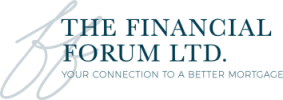When you take out a new mortgage and use the money to break, or terminate or payback an existing mortgage, it is known as mortgage refinancing. Mortgage refinancing can be done with your existing lender or a new lender. There is a penalty that will be applicable, in all likelihood, hence the cost-benefit should be done carefully before going ahead with it.
Situations in which it makes sense to refinance
Lower rate of interest
Interest is the cost you pay overtime for the money you have borrowed. As a mortgage is generally of a large value, the interest component is also significant. Being driven by market forces, as well as the Central Bank, interest rates can move up or down. If rates fall significantly from the time you started your mortgage, especially of you have a fixed-rate mortgage, it would perhaps make sense to take advantage of the lower interest rates now prevailing.
An allied benefit is that it might help you pay off your loan faster.
Releasing equity in your property
As you keep paying back the loan amount, the outstanding value owed to the bank keeps going down, St the same time, your equity in the property keeps rising. Your rising equity can fund many more ventures, such as renovations, education of children, pursuing investment opportunities, etc. One of the ways in which you can leverage the equity is by refinancing the mortgage, that can make available a lot more cash to you. A home equity line of credit (HELOC) is another commonly used mechanism.
Debt consolidation
While investment and spending opportunities can be pursued, as discussed earlier, refinancing can also enable the property owner to consolidate debt and pay off more expensive credit such as Credit Cards.
Change of terms
It is possible that the first mortgage loan you take does not have the most favorable terms, as many borrowers may not know enough about the variables that can impact the repayment journey. However, once into it, there is a better appreciation of the pros and cons. If there is a refinancing opportunity, the borrower could get better terms. A simple example could be changing from a fixed rate to a variable rate loan, or vice versa.
Potential pitfalls to watch out for
The benefits do not come free. There are likely to be costs associated with the decision to refinance and should be carefully evaluated.
Penalties
Mortgage contracts are well defined and have many penal provisions that could kick in if the borrower seeks to refinance, such as that for pre-payment.
Accessing equity will keep you in debt longer
As you pay off your mortgage, you move closer to a debt-free state, that many people look forward to. If, however, you refinance to get access to your home equity, it will start another cycle of debt repayment and keep you in debt longer.
Consolidation might reduce the incentive to pare debt
For an individual, cost of borrowings is always higher than reasonably safe financial investment options. That is the margin available to financial institutions to run their business. Hence, it is a thumb rule that one should seek to reduce debt before investing. By consolidating debt trough refinancing, the incentive to pare debt might reduce.
Legal and transaction (or closing) costs
Refinancing requires a significant amount of documentation and contracting, bringing lawyers into the picture. Legal and closing costs could further add to the cost. Home appraisal, mortgage registration and mortgage discharge could be some other costs that you will need to factor in.
Refinance versus Renewal and HELOC
A renewal is a standard process that needs to be done at the end of each term, with 5 years being the most common. While the rate could change based on market conditions, other terms usually do not. Refinance can be initiated at any point, once evaluated to be beneficial, though term-end might save some penalties.
HELOC (Home Equity Line of Credit) is a line of credit while refinancing yields another mortgage loan with a schedule of payment.
The Financial Forum for borrowers
Mortgage refinance require a careful evaluation. Consultants at The Financial Forum are trained to help you ask the right questions when you evaluate your refinancing options. The Financial Forum does not work for any lender. It works for borrowers. Our job is to make sure that you take an informed decision. Reach us on (905) 265-0246 or mortgages@thefinancialforum.ca.






